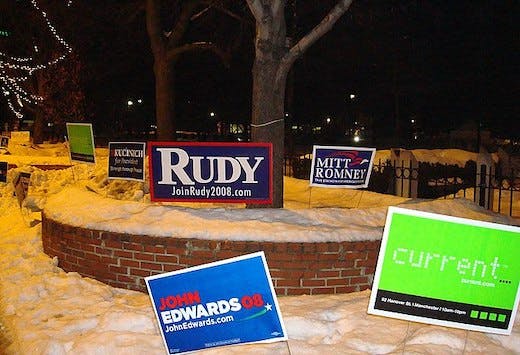
An American Hostage the Taliban Won’t Admit Exists
By HOLLIE McKAY
|The feud between the Democratic National Committee and New Hampshire could drive Democratic-leaning independents to the Republican primary polls.

Already have a subscription? Sign in to continue reading
$0.01/day for 60 days
Cancel anytime
By continuing you agree to our Privacy Policy and Terms of Service.